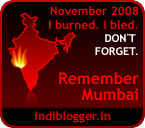But I was taken aback when I found most of them reluctant to utter even one good word about him. Since I had informed them of my visit in advance, half a dozen pastors from various Christian institutions had gathered in one place. Since they knew that Augustine had given me his firsthand account, they could not altogether deny the sequence of events nor paint Modi in the demonic light that Father Cedric Prakash, John Dayal and their associates among the human rights NGOs routinely do. But their demeanour and the hints one got from their guarded sentences and body language spoke volumes about their innate hostility towards the Bhartiya Janata Party (BJP) and Modi, which had nothing to do with what Modi actually did or failed to do. For instance, Father Jose Dali from Kerala, who has lived in Gujarat for 36 years, attributed their success in getting land for the graveyard to the “power of the lord”, and the fact that all Christians were “praying together”. To quote him, “we believe in a living god. We believe that he is a god who is able to do miracles, even if the government is against us. We believe in the power of the lord. It is a special faith of the Christians. People all around the world prayed together and because of that, the lord worked on the hearts of the magistrate as well as the leaders.” In other words, they presented to their congregation the success in getting the graveyard land as yet another miracle of Christ. Their reluctance to give credit to the Modi government either for securing free land for them or for ensuring that even minor skirmishes don’t take place among Christians and non-Christians tells its own story. They also tried to convince me that the Modi government discriminated against tribal areas with regard to development programmes and that in the interior tribal villages, road and other infrastructure was not as good as in non-tribal areas. To quote Francis Fernandes: “in tribal areas, if they are pockets of Christian faith, they will not get certain facilities”. When I asked to give him concrete examples, he couldn’t give me any. I found that charge baseless because I had travelled to the remotest tribal areas and had seen that the quality of roads was no different. True, medical services in villages near big cities were better than in interior villages. But there was no difference between tribal and non-tribal villages in this respect. The difference is more to do with doctors and nurses not willing to work in villages far from major urban centres. Thereafter, they complained that the sarpanch of that area had refused to sanction a power connection for the graveyard. Since burials don’t take place at night, I was a bit surprised that they needed a power connection for the open ground. Even so I decided to check whether this charge had any substance. I met both the current as well as the previous sarpanch of Paldi taluka panchayat. Both were categorical that the pastors had never applied for a power connection so there was no question of refusal. I called the most voluble among of the pastors from the sarpanch’s house and put my mobile phone on speaker mode. Now, the pastor, who had claimed that he had personally gone and applied for the power connection, came up with a lame story that a long while ago he had gone very early morning to the house of the sarpanch (not the panchayat office) and since the sarpanch was not at home, he left the application with an unknown person who opened the door. I asked him whether he had followed up on the matter. The answer was, “no, we didn’t follow up since we knew they would not sanction the connection.” This was a clear case of building a victimhood narrative out of a situation where the Modi government had gone out of its way to help the Christian community in more ways than one.
from Dark Ritual https://ift.tt/2kTcRot
Thursday, June 7, 2018
Subscribe to:
Post Comments (Atom)





0 comments:
Post a Comment